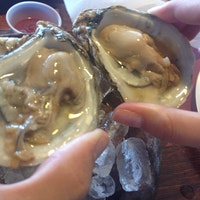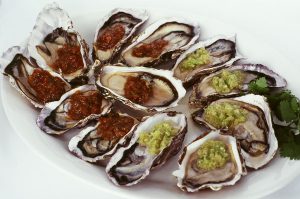Jonathan Capriel of Tampa Bay reports a jury awarded a couple $6.7 million after they got sick from eating seafood at a Tampa restaurant. The verdict came in May, years after the husband’s illness led to a rare disorder that causes paralysis and nerve damage.
 Angel Martinez and his wife Maria Elena Martinez had eaten 10 times earlier at Lobster Haven, 12807 W Hillsborough Ave., when they sat down Dec. 21, 2013, for their usual — two three-pound lobsters and a dozen Bluepoint oysters, according to court records.
Angel Martinez and his wife Maria Elena Martinez had eaten 10 times earlier at Lobster Haven, 12807 W Hillsborough Ave., when they sat down Dec. 21, 2013, for their usual — two three-pound lobsters and a dozen Bluepoint oysters, according to court records.
The couple declined to comment for this story, as did Lobster Haven owner Daniel Hall.
Attorneys for the couple said the illness was likely caused by the oysters.
“You take a risk when eating raw oysters,” said Brandon Cathey, who represented the Martinezes. “It might get you sick, but you don’t expect it to cause lifelong nerve damage.”
A few hours after the meal, the couple experienced vomiting and diarrhea, according to court records.
Maria Elena Martinez recovered in a few days, but three weeks later, her husband had to be taken by ambulance to Pasco Regional Medical Center after he collapsed on the floor at his home, according to court records.
Doctors transferred him to Tampa General Hospital, where he spent seven days in the intensive care unit, according to court records. He was paralyzed from the waist down for several months and had to learn how to walk again, according to court records.
Martinez’s foodborne illness developed into Guillain-Barre Syndrome, a rare disorder that causes the immune system to attack one’s own body.
He has recovered from the most severe symptoms of the illness but will likely feel long term effects, said his attorney Brent Steinberg.
 Lobster Haven admitted it served the couple seafood that poisoned them but denied that it caused Guillain-Barre Syndrome, blaming instead a lamb that Mr. Martinez slaughtered and ate days later.
Lobster Haven admitted it served the couple seafood that poisoned them but denied that it caused Guillain-Barre Syndrome, blaming instead a lamb that Mr. Martinez slaughtered and ate days later.
Lobster Haven’s insurance company offered to settle the case for $20,000 in 2016, Cathey said, but by then Martinez’s medical bills had reached more than $325,000, according to court records.
The restaurant had liability insurance up to $1 million and the Martinez’ likely would have settled for that amount, Cathey said.
“Now this restaurant may go out of business,” he said, “because of the way his insurance company handled this.”
 It’s believed more than 100 people have fallen ill with vomiting and diarrhea symptoms since eating the oysters.
It’s believed more than 100 people have fallen ill with vomiting and diarrhea symptoms since eating the oysters.









